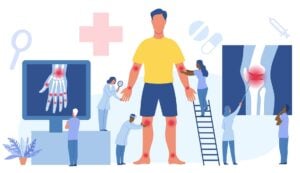

A clinical trial participant’s experience matters more than ever, not only because we want them to be valued and have a good experience, but because policies, industrial regulations and awareness are driving healthcare services such as clinical research like never before. Clinical trial Participants should trust Investigators and clinical trial coordinators with their health. When we think about the trial participant’s relationship with your investigative team, we realise just how important it is for the relationship to be a healthy one. When the relationship is strong, your study can run smoothly and the potential for positive outcomes can be strengthened due to compliance, data reliability and because participants are generally happier. When it is not, the patient may suffer from a lack of clarity about the study, the interventions involved and what is required from them.
Recently, a large-scale patient survey (The PwC Health Research Institute, 2016) indicated that patients expect the same facilities and customer service standards from their medical practitioner as they would from a bank, hotel or airline. This is important and can largely be transferred to clinical trials or research facilities. Continuity, choice and coordination of both healthcare and a trial protocol are essential service provisions to ensure you are promoting superior care.
When thinking about site management initiatives to care for your most important stakeholder, the things that are really important include:
These people are volunteers and their time and willingness to participate are very valuable. If your investigators are often late this may become a problem. The simple project management associated with the logistics of conducting visits in a timely manner, to recruitment target, cannot be understated.
Getting a warm welcome when checking into a hotel shows friendliness, but in the doctor’s office, it can be a game changer. If participants are well-informed, you can avoid “surprises” or misunderstandings, identify questions or complaints early and thereby responsibly control risk to your business in a quality management sense.
A well-designed waiting room experience can reduce participant anxiety, enhance perceptions about quality of care, distinguish your facility, generate positive word-of-mouth, and actually make the wait feel shorter than it is.
A welcome package for new enrolees goes a long way to introduce them to your team, personalise your business ethos, and foster the creation of an appreciative collaboration between your research staff and clinical trial participants. This is not something that is study specific, rather very specifically about your business and staff. It also gets you in the habit of generating reusable marketing templates, content for newsletters or brochures, highlighting the positive efforts of your team members and cost effectively adding unique or exclusive offerings that you know almost all other sites don’t present.
The reality is that the most important aspects of site management of study participants relate to the efforts you have made to create a welcoming environment, efficiently planning and tracking your study visits throughout the lifecycle of a study, (albeit with some in-built flexibility), educating, updating and engaging with your trial participants and providing ethical incentives of recognition to encourage compliance and retention throughout your clinical investigation.
View our currently recruiting studies:
Register your interest for future studies:
© Genesis Research Services, 2023